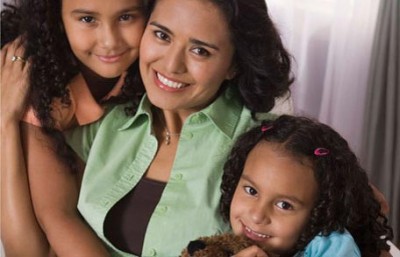NSU Newsroom
SharkBytes
Horizons
This version of NSU News has been archived as of February 28, 2019. To search through archived articles, visit nova.edu/search. To access the new version of NSU News, visit news.nova.edu.
This version of SharkBytes has been archived as of February 28, 2019. To search through archived articles, visit nova.edu/search. To access the new version of SharkBytes, visit sharkbytes.nova.edu.
Measles: Make Sure Your Child Is Protected
Source: Centers for Disease Control and Prevention
Measles is a highly contagious disease. It can be serious for young children. Protect your child by making sure he or she is up to date on vaccinations, including before traveling abroad.
Measles is a highly contagious disease caused by a virus. Measles starts with a fever. Soon after, it causes a cough, runny nose, and red eyes. Then a rash of tiny, red spots breaks out. It starts at the head and spreads to the rest of the body. Measles can be serious for young children. It can lead to pneumonia, encephalitis (swelling of the brain), and death.
How Measles Spreads
Measles spreads through the air when an infected person coughs or sneezes. It is so contagious that if one person has it, 90% of the people around him or her will also become infected if they are not protected.
People in the United States still get measles, but it’s not very common. That’s because most people in this country are protected against measles through vaccination. However, since measles is still common in parts of Europe, Asia, the Pacific, and Africa, measles is brought into the United States by people who get infected while they are abroad.
Your child’s doctor may offer the MMRV vaccine, a combination vaccine that protects against measles, mumps, rubella, and varicella (chickenpox).
Protect Your Child – at Home and when Traveling – with Measles Vaccine
You can protect your child against measles with a combination vaccine that provides protection against three diseases: measles, mumps, and rubella (MMR). The MMR vaccine is proven to be very safe and effective.
Protect Yourself against Measles
Paying for Measles Vaccine
Most health insurance plans cover the cost of vaccines. But you may want to check with your health insurance provider before going to the doctor. Learn how to pay for vaccines.
If you don’t have insurance or if your insurance does not cover vaccines for your child, the Vaccines for Children Program may be able to help. This program helps families of eligible children who might not otherwise have access to vaccines. To find out if your child is eligible, visit the VFC website or ask your child’s doctor. You can also contact your state VFC coordinator.
To read more, click here!
